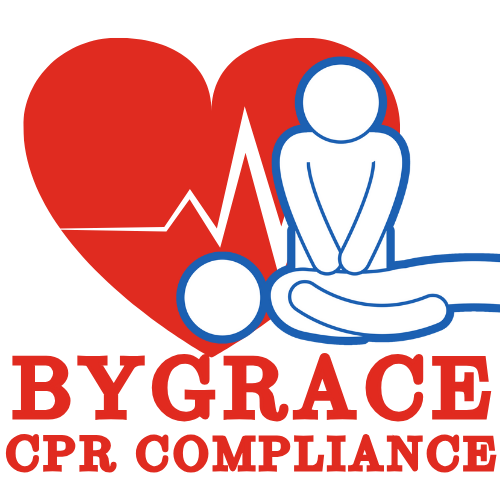High Blood Pressure( Hypertension)
Hypertension is defined as a blood pressure reading that is higher than 140/90 mm Hg. Blood pressure is the force of blood pushing against the walls of the arteries, and it’s normal for blood pressure to fluctuate throughout the day. But when it stays elevated over time, it can cause damage to the heart and other organs.
Some Causes Of Hypertension
There are a few different causes of hypertension. One of the most common causes is
- Atherosclerosis, which is a buildup of plaque in the arteries. This can make it harder for the heart to pump blood, leading to an increase in blood pressure.
- Kidney disease, which can lead to hypertension by causing fluid retention and increasing the amount of blood in the body.
- Some hormonal conditions like hyperthyroidism and Cushing’s syndrome can cause high blood pressure.
- Another common cause of hypertension is obstructive sleep apnea, which is a condition that causes the airway to become blocked during sleep, leading to breathing problems. This can cause the body to release stress hormones, which can raise blood pressure.
- Certain medications like birth control pills and decongestants can also cause an increase in blood pressure.
- There’s something called primary hypertension, which doesn’t have a specific cause and is thought to be due to genetic or environmental factors.
Some Risk Factors Of Hypertension
- The most common risk factors for hypertension are being overweight or obese, having a family history of hypertension, being older, and having a sedentary lifestyle.
- Certain lifestyle factors like smoking, excessive alcohol consumption, and a high-salt diet can also contribute to hypertension.
- Having diabetes or prediabetes, having certain chronic conditions like kidney disease or sleep apnea, and taking certain medications like birth control pills or cold medicines.
- Chronic stress can also contribute to hypertension.
How to Diagnosis Hypertension
Sure thing! Hypertension is usually diagnosed with a blood pressure reading of 140/90 mm Hg or higher on two or more occasions. Sometimes, a single reading of 180/120 mm Hg or higher is enough to make a diagnosis. Before diagnosing hypertension, doctors usually take multiple readings to make sure the elevated blood pressure isn’t caused by another condition or a temporary stressor.
Some Preventive measures of Hypertension
There are a few different ways to prevent hypertension.
- One of the most important things is to maintain a healthy weight. Being overweight or obese is a major risk factor for hypertension.
- Another important prevention strategy is to eat a healthy diet that’s low in sodium and saturated fat and high in fruits, vegetables, and whole grains.
- Exercise is also important for preventing hypertension, and the American Heart Association recommends at least 150 minutes of moderate exercise per week.
- And finally, it’s important to avoid smoking and to limit alcohol consumption.
- Having your blood pressure checked regularly can help detect hypertension early on, when it’s easier to treat.
Treatment of Hypertension
Okay, let’s talk about treatment for hypertension. If lifestyle changes alone aren’t enough to lower blood pressure, medications may be necessary. There are several types of medications that can be used to treat hypertension, including
Diuretics, beta-blockers,
ACE inhibitors, and
Calcium channel blockers.
These medications work in different ways to lower blood pressure. It’s important to work with a doctor to find the right medication and dose for you.
In addition to medications, there are some alternative and complementary treatments that may be helpful.
These include
Meditation,
Biofeedback,
Yoga
Tai chi.
These treatments may not lower blood pressure as much as medications, but they can help reduce stress and promote overall health.
That’s great! A combination of lifestyle changes, medications, and alternative treatments can be very effective for managing hypertension.
Another important part of treatment is monitoring your blood pressure at home. This can help you and your doctor see how well your treatment plan is working.
Bottom Line
Well, based on what we’ve discussed, it’s clear that hypertension is a serious condition that can have serious consequences if left untreated.
However, with early diagnosis and treatment, it can be well managed. Lifestyle changes, such as eating a healthy diet, exercising regularly, and managing stress, can be very effective in reducing the risk of developing hypertension.
There are many helpful resources available, like the American Heart Association website, to help people make healthy choices and learn about their condition.
The AHA recommends that all adults have their blood pressure checked at least once every two years. They also recommend that people with certain risk factors, like a family history of hypertension or diabetes, have their blood pressure checked more often.
The AHA also provides educational materials on healthy eating, exercise, and stress management.
The AHA website has a lot of great information on hypertension and heart health in general. They also have a lot of helpful resources, like videos, infographics, and quizzes.
And they even have a “know your numbers” tool that lets you enter your blood pressure readings to get a personalized report.
The website is
When you get there, you can click on the “learn” tab at the top of the page. Then, you can choose “know your numbers” from the drop-down menu. You can enter your blood pressure readings, gender, age, and height to get your personalized report.

0 Comments